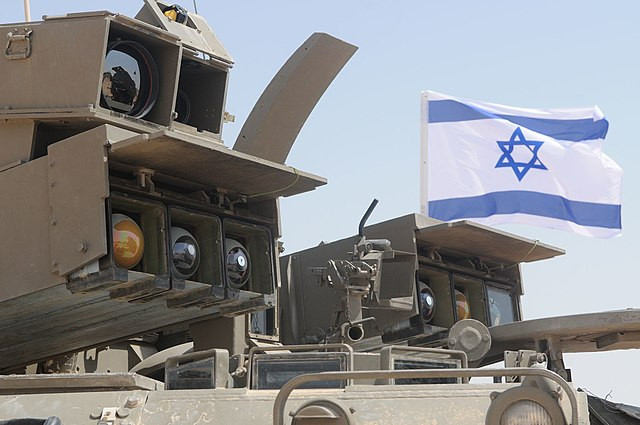An Israeli airstrike on Hezbollah's stronghold in southern Beirut on Friday has left at least 31 people dead, including a high-ranking Hezbollah commander, in what is being seen as a significant escalation in the ongoing conflict between Israel and Hezbollah. The strike, which leveled a multistory building in the Dahiyeh neighborhood, marks one of the deadliest attacks in Lebanon since hostilities reignited following the October 7 Hamas assault on Israel.
Among the dead is Ibrahim Aqil, a senior commander in Hezbollah's elite Radwan Force, who had a $7 million U.S. bounty on his head for his suspected involvement in the 1983 bombing of the U.S. Embassy in Beirut. Hezbollah confirmed his death, along with several other commanders. "Ibrahim Aqil was assassinated following a treacherous Israeli operation," the group said in a statement.
The Israeli Defense Forces (IDF) have claimed responsibility for the strike, with spokesperson Daniel Hagari stating that the targeted Hezbollah operatives had been planning to launch attacks on Israel's northern Galilee region. According to Hagari, the commanders were "using civilians as human shields" in a residential building when the airstrike was carried out.
The Lebanese Health Minister, Firass Abiad, confirmed the death toll at a news conference, stating that three children and seven women were among the casualties. Additionally, three Syrian nationals were killed, and 68 others were injured in the attack. Rescue workers continued clearing rubble on Saturday, with several bodies still unidentified.
This latest strike is the third Israeli attack on Beirut this year and comes on the heels of a week of surprise attacks that have rattled the region. On Tuesday and Wednesday, explosions triggered by pagers and walkie-talkies used by Hezbollah members killed dozens across Beirut and southern Lebanon. Israel initially remained silent about its involvement, but later tacitly acknowledged responsibility for the coordinated explosions. These incidents further heightened tensions, as both sides brace for a potential full-scale war.
Hezbollah, which has been involved in cross-border skirmishes with Israel since last year, has been hit hard by the recent string of attacks. The militant group has now lost 499 fighters since the October 7 conflict began, with Friday's airstrike dealing another blow to its leadership structure. Among the dead was Ahmed Wahbi, who headed Hezbollah's central training unit.
The impact of these strikes extends beyond Lebanon, with regional powers closely monitoring the escalating violence. Iran, which backs Hezbollah, condemned the airstrike, calling it "another major crime" by Israel. In a statement, Mohsen Rezaee, a senior official of Iran's Islamic Revolutionary Guard Corps (IRGC), warned that the region was on the "brink of war" and that Israel's actions could lead to broader conflict across the Middle East. "It is possible that after Lebanon, they may extend their crimes toward Iraq, Syria, or even Iran," Rezaee said, raising concerns about the regional implications of the violence.
At the United Nations, the situation has drawn international alarm. In a Security Council meeting on Friday, UN human rights chief Volker Türk and political affairs chief Rosemary DiCarlo warned of the risks of further escalation. DiCarlo expressed concern that the current trajectory of violence could result in a "conflagration that could dwarf even the devastation and suffering witnessed so far." She urged for diplomacy to prevent a worsening of the crisis.
While Hezbollah mourned the loss of its senior commanders, the group vowed to retaliate against Israel. Secretary-General Hassan Nasrallah, in a fiery speech on Thursday, promised that Israel would face a "reckoning." Nasrallah's warning came as Israel launched a series of airstrikes on Hezbollah positions in southern Lebanon, targeting over 100 rocket launchers in one of the largest bombardments since the cross-border exchanges began last year.
Israeli Defense Minister Yoav Gallant has praised the IDF's "excellent achievements" in its operations against Hezbollah and other Iran-backed militant groups. He signaled that the conflict was entering a "new era" of warfare and emphasized that Israel would not back down from its efforts to neutralize Hezbollah's military capabilities. The Israeli security cabinet, earlier in the week, voted to include the return of residents to communities along Israel's northern border as a primary objective in its ongoing military operations.
The situation in Lebanon remains tense as Israeli airstrikes continue and Hezbollah vows retaliation. The combination of airstrikes, targeted assassinations, and cross-border skirmishes has left tens of thousands of people displaced from their homes in both southern Lebanon and northern Israel. The likelihood of further escalation appears high as both sides dig in for a prolonged conflict that could have wide-reaching consequences across the Middle East.
In the aftermath of Friday's deadly strike, the streets of southern Beirut were filled with signs of fear and panic. Rescue workers scrambled to recover bodies from the rubble, while some residents packed their belongings and fled the area. A CNN team on the ground described scenes of civilians rushing to evacuate, with cars packed with suitcases and families fleeing their homes, unsure of what the next wave of violence might bring.




